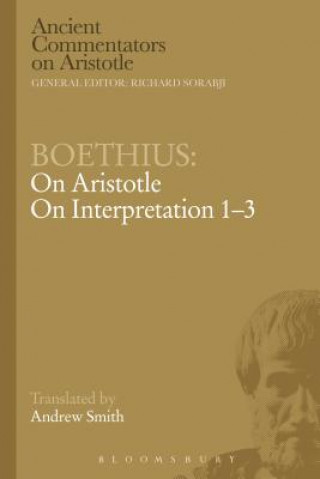
Kód: 04437295
Boethius: On Aristotle On Interpretation 1-3
Autor Boethius
Boethius (c. 480-c. 525) wrote his highly influential second commentary on Aristotle's On Interpretationin Latin, but using the style of the Greek commentaries on Aristotle. It was part of his project to bring knowledge of Plato a ... celý popis
- Jazyk:
 Angličtina
Angličtina - Vazba: Pevná
- Počet stran: 176
Nakladatelství: Bloomsbury Publishing, 2010
- Více informací o knize

Mohlo by se vám také líbit
-

Outlander
320 Kč -

Luscious
453 Kč -

Pet Sematary
348 Kč -
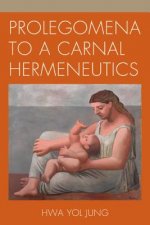
Prolegomena to a Carnal Hermeneutics
4062 Kč -

Faculty Groups
2403 Kč -

Power of Commerce
2881 Kč -

Activity-Based Management for Service Industries, Industries, Government Entities & Nonprofit Organizations (Paper)
2619 Kč -

Transversal Rationality and Intercultural Texts
2596 Kč -

Best 50 Bruschetta Recipes
212 Kč -

Fearsome Heritage
1926 Kč -

Schopenhauer and the Wild Years of Philosophy
1769 Kč -

Positive Discipline: The First Three Years, Revised and Updated Edition
383 Kč -

123 VAVAVROOM
453 Kč -

Crooked Kingdom
268 Kč -

Disney Fake Book - 4th Edition
1097 Kč -

The Fountain Tarot
934 Kč -

The Night Club Part I
458 Kč -

The Adventures of Little Pansy, 1862: Pansy Parlin Series...My Little Folks Books
229 Kč -

Cheyenne Winter
436 Kč -

One More Croissant for the Road
261 Kč -

ABBA
358 Kč -

Easy Tarot
488 Kč -

Peter and Wendy
658 Kč -

John Bowlby and Attachment Theory
1369 Kč -

Cambridge Academic English C1 Advanced Teacher's Book
781 Kč -

Thinking Straight
1724 Kč -

Harold Macmillan
463 Kč -

Shinichi Suzuki
770 Kč -

German Life Writing in the Twentieth Century
2860 Kč -

When Sheep Cannot Sleep
221 Kč -

Black Death 1346-1353: The Complete History
947 Kč -

On War
143 Kč -

Geo-Engineering Climate Change
4070 Kč -

ECG Ruler Pocketcard
84 Kč -

Dark Pasture
320 Kč
Dárkový poukaz: Radost zaručena
- Darujte poukaz v libovolné hodnotě a my se postaráme o zbytek.
- Poukaz se vztahuje na celou naši nabídku.
- Elektronický poukaz vytisknete z e-mailu a můžete ihned darovat.
- Platnost poukazu je 12 měsíců od data vystavení.
Více informací o knize Boethius: On Aristotle On Interpretation 1-3
Nákupem získáte 732 bodů
 Anotace knihy
Anotace knihy
Boethius (c. 480-c. 525) wrote his highly influential second commentary on Aristotle's On Interpretationin Latin, but using the style of the Greek commentaries on Aristotle. It was part of his project to bring knowledge of Plato and Aristotle to the Latin-speaking world of his fellow Christians. The project was cruelly interrupted by his execution at the age of about 45, leaving the Latin world under-informed about Greek Philosophy for 700 years. Boethius reveals to us how On Interpretation was understood not only by himself, but also by some of the best Greek interpreters, especially Alexander and Porphyry. Alexander had insisted that its subject was composite thoughts, not composite sentences nor composite things - it is thoughts that are primarily true or false. Although Aristotle's first six chapters define name, verb, sentence, statement, affirmation and negation, Porphyry had claimed that Aristotelians believe in three types of name and verb, written, spoken and mental, in other words a language of the mind. Boethius discusses individuality and ascribes to Aristotle a view that each individual is distinguished by having a composite quality that is not merely unshared, but unshareable. Boethius also discusses why we can still say that the dead Homer is a poet, despite having forbidden us to say that the dead Socrates is either sick or well. But Boethius' most famous contribution is his interpretation of Aristotle's discussion of the threat of that tomorrow's events, for example a sea battle, will have been irrevocable 10,000 years ago, if it was true 10,000 years ago that there would be a sea battle on that day. In Boethius' later "Consolation of Philosophy", written in prison awaiting execution, he offered a seminal conception of eternity to solve the related problem of future events being irrevocable because of God's foreknowledge of them.
 Parametry knihy
Parametry knihy
Zařazení knihy Knihy v angličtině Humanities Philosophy History of Western philosophy
7321 Kč
- Plný název: Boethius: On Aristotle On Interpretation 1-3
- Autor: Boethius
- Jazyk:
 Angličtina
Angličtina - Vazba: Pevná
- Počet stran: 176
- EAN: 9780715639184
- ISBN: 0715639188
- ID: 04437295
- Nakladatelství: Bloomsbury Publishing
- Hmotnost: 436 g
- Rozměry: 241 × 162 × 20 mm
- Datum vydání: 22. July 2010
Oblíbené z jiného soudku
-

Meditations
279 Kč -

The Myth of Sisyphus
169 Kč -

Why I Am so Clever
91 Kč -

Meditations
433 Kč -

Republic
283 Kč -

Beyond Good and Evil
276 Kč -

Gay Science
322 Kč -

Aphorisms on Love and Hate
89 Kč -

Beyond Good & Evil
331 Kč -

Meditations on First Philosophy
276 Kč -
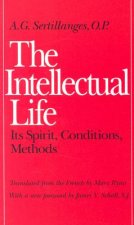
Intellectual Life
478 Kč -

Socrates' Defence
89 Kč -
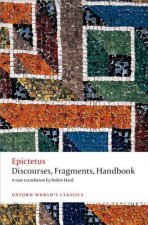
Discourses, Fragments, Handbook
323 Kč -

Ride the Tiger
518 Kč -

Thus Spoke Zarathustra
302 Kč -

Fear and Trembling
276 Kč -

Birth of Tragedy
89 Kč -
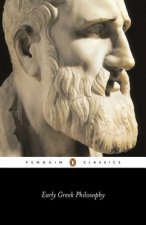
Early Greek Philosophy
356 Kč -

Groundwork for the Metaphysics of Morals
276 Kč -
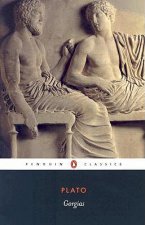
Gorgias
232 Kč -

Brief History of Analytic Philosophy - From Russell to Rawls
955 Kč -
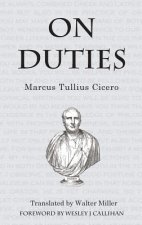
On Duties
335 Kč -

Discourses and Selected Writings
323 Kč -

Nicomachean Ethics
143 Kč -

Nausea
276 Kč -

Letters from a Stoic
276 Kč -

Meditations
502 Kč -

Simulacra and Simulation
416 Kč -

Phenomenology of Spirit
545 Kč -

Twilight of the Idols with The Antichrist and Ecce Homo
143 Kč -

On Liberty, Utilitarianism and Other Essays
223 Kč -

On the Suffering of the World
196 Kč -

Human Condition
514 Kč -

On the Shortness of Life
236 Kč -

Existentialism Is a Humanism
223 Kč -

Think
302 Kč -

Guide to the Good Life
460 Kč -
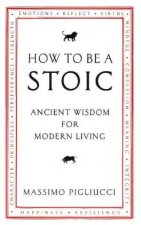
How To Be A Stoic
465 Kč -

The Symposium
235 Kč -

Human, All Too Human & Beyond Good and Evil
143 Kč -

At The Existentialist Cafe
277 Kč -

Undiscovered Self
708 Kč -
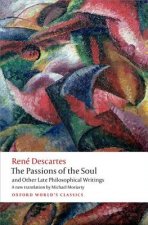
Passions of the Soul and Other Late Philosophical Writings
302 Kč -

The Trouble With Being Born
322 Kč -

Leviathan
143 Kč -
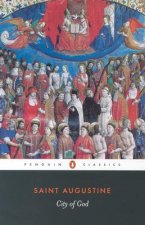
City of God
449 Kč -

Ecce Homo
249 Kč -
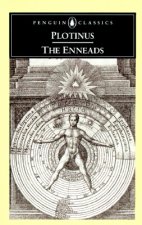
Enneads
410 Kč -

On Friendship
196 Kč
Osobní odběr Praha, Brno a 12903 dalších
Copyright ©2008-24 nejlevnejsi-knihy.cz Všechna práva vyhrazenaSoukromíCookies



 Vrácení do měsíce
Vrácení do měsíce 571 999 099 (8-15.30h)
571 999 099 (8-15.30h)